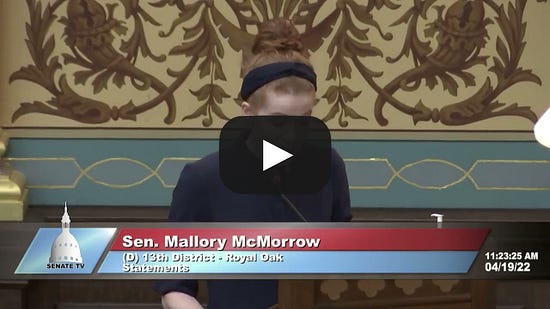Julie Anderson is eminently qualified for the job–Meet her today in Spokane

One of the prime responsibilities of the Washington State Secretary of State (SOS) is oversight of elections that are administered by county auditors. Events in the State of Georgia and elsewhere in the 2020 election highlight this managerial responsibility. The job demands an administrator with experience. In 2022 we will choose among candidates for Washington State Secretary of State to finish out the last two years of Kim Wyman’s (R) four year term. Ms. Wyman resigned last November (2021) to take a position in the Biden administration. Ordinarily, statewide offices only appear on our ballots in this state in presidential election years. This out-of-sync SOS race should get more than the typical attention—as well it should, considering all the concerns around election security.
Kim Wyman served as Washington State Secretary of State for almost nine years. Regardless of her party designation, she was no partisan political hack—she had more than twenty years appropriate experience before she ran for Secretary of State in 2012 to replace the well-respected Sam Reed (R). She came to the office of Secretary of State after serving from January 2001 to 2012 as the Thurston County Auditor—a position to which she was initially appointed only after serving as the elections manager in the Thurston County Auditor’s office for eight years. In 2012, when Kim Wyman first won her seat as WA Secretary of State, she won against a former Democratic WA State Senator with no experience in elections management. Apparently, some voters look beyond “prefers ____ Party” designations—as well they should.
This year we have a similar choice between experience and politics. Julie Anderson has served for twelve years as Pierce County Auditor. Her resume is replete with a multitude of certifications pertinent to both the Auditor and Secretary of State positions. According to our own highly respected Spokane County Auditor, Vicky Dalton:
Julie has been a statewide leader for the County Auditors. She possesses vision and successfully articulates that vision to others. She then brings people together, drawing out each person’s best attributes to contribute to the success of the project.
She is truly a remarkable person who is absolutely the best person to be our Washington Secretary of State.
Ms. Anderson is running against a former Democratic Washington State Senator with scant qualifications for the job. He (Mr. Hobbs) was appointed to serve as Secretary of State by Governor Inslee last November, for reasons known only to the governor and about which we can only speculate. His choice was certainly was not based on experience relevant to serving as Secretary of State, based on this article detailing the candidates and published before the governor made his choice.
This evening in Spokane you have a chance to meet Julie Anderson. I encourage you to drop by The Backyard Public House, 1811 W Broadway Ave, Spokane WA 99201, this afternoon, Wednesday, April 27, 4:00 – 6:00 p.m.
Bill Siems and I, as loosely designated representatives of Spokane Indivisible, visited with Ms. Anderson on Zoom recently. We were both impressed—and we think you will be, too. ‘
(If you live in Walla Walla, she’ll be at Big House Brew Pub, 11 S Palouse St, 5:00 – 6:30 p.m., tomorrow, Thursday, April 28.)
Keep to the high ground,
Jerry
P.S. SOME BACKGROUND: Washington State candidates officially file for election between May 2 and May 20 of the year of the elections. (That’s in contrast to many states, including Idaho, where the candidates who will appear on the November ballot have already been chosen by primary elections held in May [before many voters are even aware that it’s an election year].) Serious candidates for most offices in Washington State who are gathering money for their campaigns file much earlier than May with the WA State Public Disclosure Commission (pdc.wa.gov). One can get an idea of who is running and how seriously by checking out the fund raising for a particular office as reported on the PDC website.
WASHINGTON STATE SECRETARY OF STATE PDC FILINGS: If you go to pdc.wa.gov and enter 2022 for the “Election year” and “Secretary of State” for the “Office” you can see who has started raising money for this campaign. As of the current date, although six candidates have filed with the PDC, only two have acquired significant contributions: Julie Anderson (O) with $81,257.92 and Steve Hobbs (D) $208,526.01. Hobbs’ campaign coffers demand explanation.
Hobbs has been in political office for fifteen years as the State Senator from LD44, during much of which time he has served on or chaired the powerful Transportation Committee. More recently he has served on the Environment, Energy & Technology Committee, a committee of particular interest to Governor Inslee. Serving on these committees and running for office every four years as a state senator (and sometimes in between for the post of Lieutenant Governor) Mr. Hobbs accumulated a substantial war chest of campaign contributions from corporate donors.
Our Washington State campaign finance regulations allow unused campaign funds to be rolled over into another campaign, even for another office (within certain rules). Consequently, a career politician like Mr. Hobbs, after jumping through a few hoops, can start out with substantial campaign coffers that are not necessarily indicative of endorsement for the new office they are seeking. (Twice in the past, 2016 and 2020, has initiated an unsuccessful campaign for Lieutenant Governor based at least in part on accumulated contributions.)
The moral of this story: Career politicians often have a financial advantage based on prior contributions when they pursue another office —if they follow the rules.


